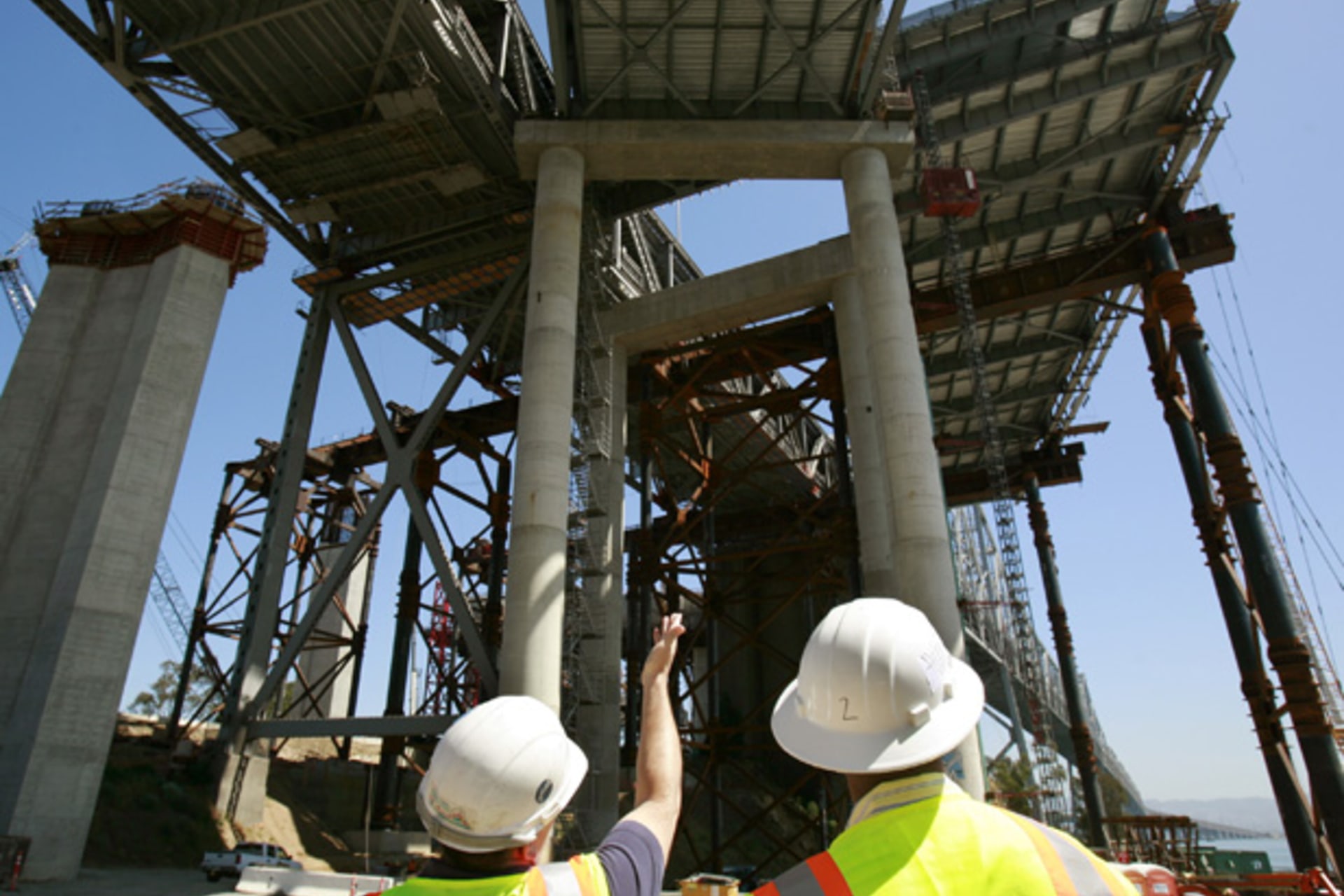Morning Brief: California Freeway is Test Case for Public-Private Infrastructure Development

By experts and staff
- Published
By
- Jonathan MastersDeputy Managing Editor
A group of European investors is financing, designing, building, and maintaining a freeway leading to the Golden Gate Bridge (NYT). California will pay the developers a set amount upon completion and an annual fee over three decades. Critics charge that the terms are too generous to investors; their expected 14 percent return is substantially higher than California’s borrowing rate. But this arrangement gives California cost certainty for three decades, and the consortium will bear construction cost overruns and unexpected maintenance costs. With Gov. Jerry Brown’s push for private investment into new high speed rail projects, supporters say this project may serve as a model for future development.
Lawmakers continue to debate the costs and benefits of investment in the U.S. rail network, with high speed rail a key issue. This CFR Backgrounder summarizes the historical development of freight and passenger rail as well as policy concerns and options facing lawmakers.
Infrastructure. Read more on how upgrading the nation’s aging network of roads, bridges, airports, railways, and water systems is essential to maintaining U.S. competitiveness.
Public High Schools Sell Seats to Foreign Students
Reuters reports there is a small but growing trend of foreign students paying tuition to enroll in public high schools. Foreign students wishing to secure enrollment in U.S. colleges benefit from greater exposure to English and connections to American teachers who can provide letters of recommendation. While U.S. colleges have benefited from foreign students and tuition payments for decades, putting vacant high school seats on the international market is a novel approach to address declining enrollment and budgets.
Education and human capital. Read more from experts discussing ways to improve U.S. education and immigration policies.
Addressing Executive Pay with Less Focus?
The Harvard Business Review suggests that the increased focus on rising executive pay has driven it higher. Greater transparency—especially disclosures at the individual level—has made executive pay into a competitive scoreboard and increased its motivational importance. The author suggests depersonalizing disclosure and linking policies to firm strategy rather than reporting individual compensation. The author also advises greater shareholder control of the board of directors, the ultimate arbiters of pay.
Tax Incentives for Star Footballers
In 2004 Italy and Spain had roughly the same percentage of the world’s top stars in football (U.S. soccer) and had similar tax rates. In 2004 Spain passed “Beckham’s Law,” which gave preferential tax treatment to foreign footballers. Spain’s share of star players grew as Italy’s fell; by 2007 Spain’s share was twice of Italy’s. The broader point of this piece in The Economist is that tax policy can attract or repel star talent, whether on the pitch or in the corner office.
Corporate regulation and taxation. Read more from top economists and business experts on solutions for addressing corporate tax reform.
Virtual Currencies Have Great Potential and Hurdles
TechCrunch suggests that virtual currencies may be the next big thing. Zynga already convinces players to exchange real-world currency for virtual currency to buy virtual tractors on FarmVille. While Facebook expands its FB credits system, some advertisers are awarding virtual currency to those who interact with their ads. In the future, gamers may be paid virtual cash after completing real world tasks, such as translating text or identifying images. But, virtual currency also faces significant regulatory challenges as demonstrated by Bitcoin’s recent problems (Bloomberg BusinessWeek).
Innovation. Read more on how the U.S. capacity to innovate could play a chief role in economic growth.